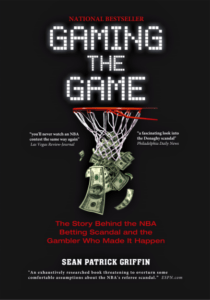THE SPREAD OF sports betting poses new legal risks for college athletes in states where gambling is allowed, but an ESPN analysis has found that most university athletic departments in those states typically don’t address the new legal pitfalls.
Using public records requested by the Student Press Law Center, ESPN reviewed sports-betting policies at 24 Power 5 public universities in states that had mobile sports betting by the end of 2023 and found that only four schools had policies that explicitly warn student-athletes of potential legal consequences.
While college athletes have long faced losing NCAA eligibility for betting on sports, the legal risks are new since the advent of legalized betting six years ago. State laws now often subject athletes to greater punishment — and may even criminalize — wagering by athletes.
It isn’t clear if the universities address the potential legal consequences at in-person sessions with athletes because 21 of the 24 schools contacted by ESPN declined to comment or did not respond to multiple emails asking about their educational efforts around gambling.
The apparent lack of information in policies could leave athletes unaware that engaging in the same betting activity as their non-athlete fellow students could leave them in a legal bind. A 2023 NCAA survey of 18- to 22-year-olds found that 58% have participated in at least one sports betting activity. Six percent said they had lost more than $500 on sports betting in a single day.
University of South Dakota football player Clayton Denker, a member of the school’s student-athlete advisory committee, said the athletic department emphasized the ban on sports gambling at the beginning of the school year and stressed that violations could bring “severe consequences” and a loss of eligibility.
However, Denker said, he had no idea that betting while a college athlete could be a felony in South Dakota.
“They should lead with that,” Denker told ESPN. “If [athletes] were to understand this affects the rest of my life, not just my sport, then I think they would take it more seriously.”
The issue of regulatory and criminal consequences has become more prominent in the past two years as athletes and coaches — to whom the ban and new laws also apply — from at least five schools in three states have been criminally charged.
“It seems to me to make sense that student-athletes are educated on their various state laws,” said Mark Hicks, the NCAA’s managing director of enforcement. He added that the job is better left to individual schools than to the NCAA, although the organization would support more consistency. “As much as we can advocate for consistent practices across state lines, that’s really helpful.”
A “majority” of the responsibility for educating athletes about state law does fall on the school, said John Carns, the senior associate athletic director for compliance at the University of Louisville.
“Student-athletes are only thinking about, probably their eligibility, but there are other legal consequences to it that they’re going to fall into,” he said. “And that’s not a great way to start your adult life.”
Any criminal conviction could have long-term repercussions for student-athletes, said Julie Sommer, executive director of The Drake Group, a nonprofit that advocates for reform in college sports. A conviction would possibly have to be disclosed to future employers or graduate schools and could affect future opportunities, such as taking the bar exam, she said.
“The penalties are really severe for college athletes, [such as] loss of scholarship,” Sommer said. “And the breaking of state and federal laws, that’s something that follows them for the rest of their lives.”
IN THE 38 states with legalized sports betting, all but two specifically restrict athletes from betting on sports, according to research compiled for this story by Legal Sports Report. Six states — Kentucky, New Jersey, South Dakota, Tennessee, Virginia and West Virginia — have “clear criminal penalties” when an athlete or other prohibited person places a bet, according to the research.
Among those states, the definition of crime varies.
